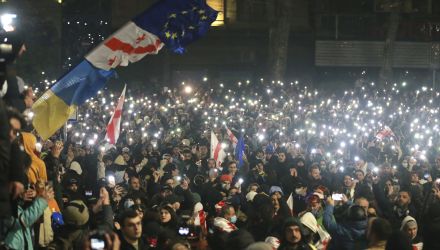Fighting and Helping? Domestic Politics and NGO-Military Relationships in Complex Humanitarian Emergencies
During complex humanitarian emergencies—crises with total or considerable breakdown of authority resulting from internal or external conflict that lead to a significant international response—the relations between humanitarian nongovernmental organizations (NGO)s and military organizations vary widely, ranging from hostility to cooperation. In some cases, NGOs and military organizations define forms of coordination to avoid duplication—they cooperate and even launch projects together. In others, however, they refuse to cooperate and even engage in vigorous and public mutual recrimination. Why? This seminar will explore empirically the challenges of these disputed boundaries and the ways in which humanitarian NGOs and military organizations face them in their areas of operation during the course of their missions.
Please join us! Coffee and tea provided. Everyone is welcome, but admittance will be on a first come–first served basis.



